Ford Explorer EV vs Hyundai IONIQ 6 - Differences and prices compared
Compare performance (340 HP vs 650 HP), boot space and price (34200 £ vs 37600 £ ) at a glance. Find out which car is the better choice for you – Ford Explorer EV or Hyundai IONIQ 6?
Costs and Efficiency:
When it comes to price and running costs, the biggest differences usually appear. This is often where you see which car fits your budget better in the long run.
Ford Explorer EV has a somewhat advantage in terms of price – it starts at 34200 £ , while the Hyundai IONIQ 6 costs 37600 £ . That’s a price difference of around 3428 £.
In terms of energy consumption, the advantage goes to the Hyundai IONIQ 6: with 13.90 kWh per 100 km, it’s slight more efficient than the Ford Explorer EV with 14.50 kWh. That’s a difference of about 0.60 kWh.
As for electric range, the Hyundai IONIQ 6 performs slight better – achieving up to 614 km, about 12 km more than the Ford Explorer EV.
Engine and Performance:
Power, torque and acceleration are the classic benchmarks for car enthusiasts – and here, some clear differences start to show.
When it comes to engine power, the Hyundai IONIQ 6 has a convincingly edge – offering 650 HP compared to 340 HP. That’s roughly 310 HP more horsepower.
In acceleration from 0 to 100 km/h, the Hyundai IONIQ 6 is clearly quicker – completing the sprint in 3.20 s, while the Ford Explorer EV takes 5.30 s. That’s about 2.10 s faster.
In terms of top speed, the Hyundai IONIQ 6 performs noticeable better – reaching 257 km/h, while the Ford Explorer EV tops out at 180 km/h. The difference is around 77 km/h.
There’s also a difference in torque: Hyundai IONIQ 6 pulls a bit stronger with 770 Nm compared to 679 Nm. That’s about 91 Nm difference.
Space and Everyday Use:
Whether family car or daily driver – which one offers more room, flexibility and comfort?
Both vehicles offer seating for 5 people.
In curb weight, Hyundai IONIQ 6 is hardly perceptible lighter – 1850 kg compared to 1908 kg. The difference is around 58 kg.
In terms of boot space, the Ford Explorer EV offers a bit more room – 450 L compared to 401 L. That’s a difference of about 49 L.
When it comes to payload, Ford Explorer EV evident takes the win – 585 kg compared to 430 kg. That’s a difference of about 155 kg.
Who wins the race in the data check?
The Hyundai IONIQ 6 is clearly superior overall in the objective data comparison.
This result only shows which model scores more points on paper – not which of the two cars feels right for you.
Costs and Consumption
View detailed analysis
Engine and Performance
View detailed analysis
Dimensions and Body
View detailed analysis
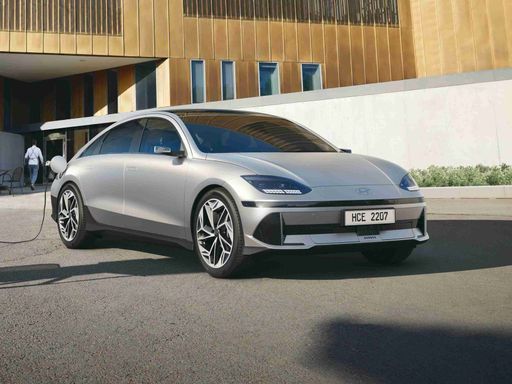
Hyundai IONIQ 6
Ford Explorer EV
The Ford Explorer EV translates the familiar big‑American SUV presence into whisper‑quiet electric motoring, offering roomy seating and a tech‑forward cabin that will please families and road‑trippers alike. It drives with more composure than its boxy looks suggest, blending a comfortable ride and eager acceleration while undercutting the guilt of gas stops — a practical, modern alternative for buyers who want Explorer space with electric charm.
details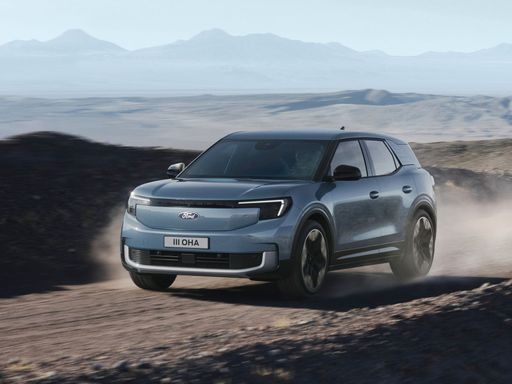
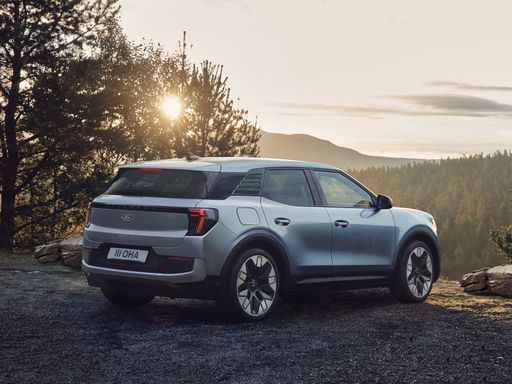
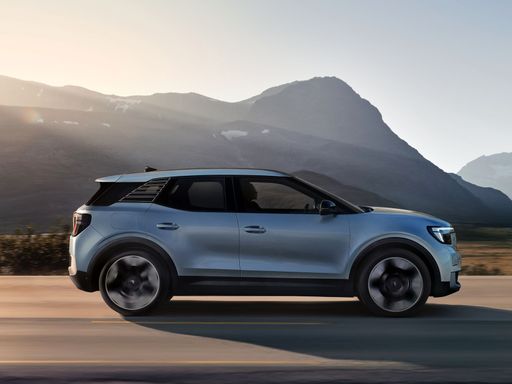
Hyundai IONIQ 6
The Hyundai IONIQ 6 glides down the road with a poise that feels more runway model than commuter car, its sleek silhouette promising efficiency without trying too hard. Inside, a calm, minimalist cabin packed with clever, usable tech makes it a compelling choice for buyers who want electric motoring that's smart, stylish and quietly practical.
details
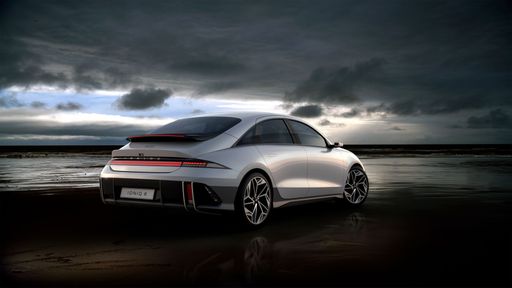
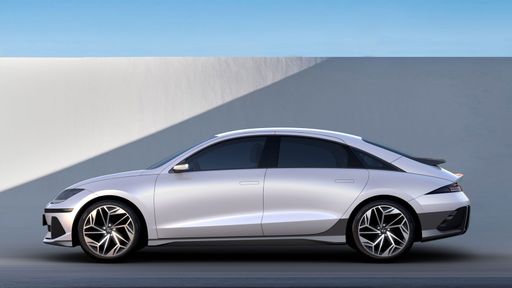
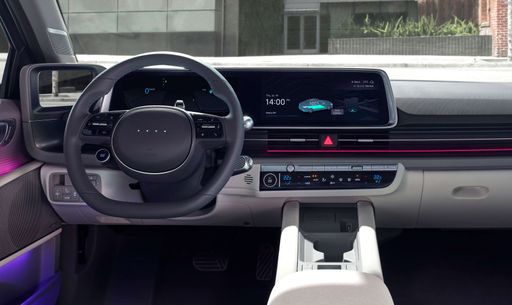
Costs and Consumption |
|
|---|---|
|
Price
34200 - 48800 £
|
Price
37600 - 64300 £
|
|
Consumption L/100km
-
|
Consumption L/100km
-
|
|
Consumption kWh/100km
14.5 - 17.2 kWh
|
Consumption kWh/100km
13.9 - 15.1 kWh
|
|
Electric Range
360 - 602 km
|
Electric Range
429 - 614 km
|
|
Battery Capacity
52 - 79 kWh
|
Battery Capacity
53 - 84 kWh
|
|
co2
0 g/km
|
co2
0 g/km
|
|
Fuel tank capacity
-
|
Fuel tank capacity
-
|
Dimensions and Body |
|
|---|---|
|
Body Type
SUV
|
Body Type
Hatchback
|
|
Seats
5
|
Seats
5
|
|
Doors
5
|
Doors
4
|
|
Curb weight
1908 - 2179 kg
|
Curb weight
1850 - 2095 kg
|
|
Trunk capacity
445 - 450 L
|
Trunk capacity
401 L
|
|
Length
4468 mm
|
Length
4855 - 4935 mm
|
|
Width
1871 mm
|
Width
1880 - 1940 mm
|
|
Height
1630 - 1639 mm
|
Height
1495 mm
|
|
Max trunk capacity
1417 - 1422 L
|
Max trunk capacity
-
|
|
Payload
561 - 585 kg
|
Payload
425 - 430 kg
|
Engine and Performance |
|
|---|---|
|
Engine Type
Electric
|
Engine Type
Electric
|
|
Transmission
Automatic
|
Transmission
Automatic
|
|
Transmission Detail
Reduction Gearbox
|
Transmission Detail
Reduction Gearbox
|
|
Drive Type
Rear-Wheel Drive, All-Wheel Drive
|
Drive Type
Rear-Wheel Drive, All-Wheel Drive
|
|
Power HP
170 - 340 HP
|
Power HP
151 - 650 HP
|
|
Acceleration 0-100km/h
5.3 - 8.7 s
|
Acceleration 0-100km/h
3.2 - 8.8 s
|
|
Max Speed
160 - 180 km/h
|
Max Speed
185 - 257 km/h
|
|
Torque
310 - 679 Nm
|
Torque
350 - 770 Nm
|
|
Number of Cylinders
-
|
Number of Cylinders
-
|
|
Power kW
125 - 250 kW
|
Power kW
111 - 478 kW
|
|
Engine capacity
-
|
Engine capacity
-
|
General |
|
|---|---|
|
Model Year
2024 - 2025
|
Model Year
2022 - 2025
|
|
CO2 Efficiency Class
A
|
CO2 Efficiency Class
A
|
|
Brand
Ford
|
Brand
Hyundai
|
What drive types are available for the Ford Explorer EV?
The Ford Explorer EV is available as Rear-Wheel Drive or All-Wheel Drive.
